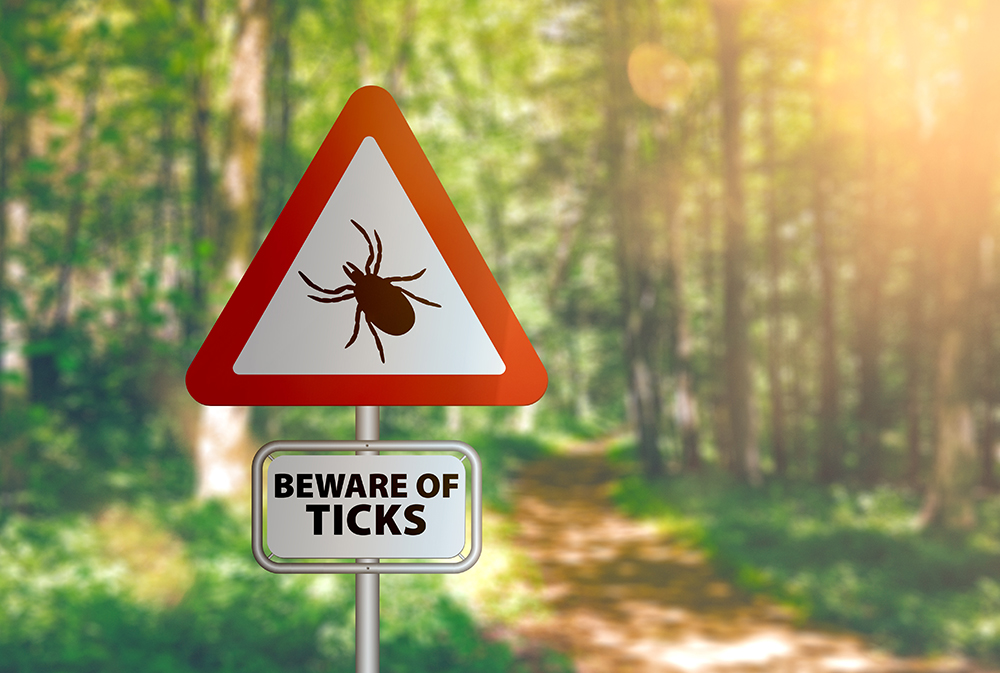Wednesday, September 6, 2023
A Lesser-Known, But More Serious Tick-Borne Illness is Surging. Here’s How to Protect Yourself
We are in peak tick season in New York and the broader Northeast region. While many people are familiar with the risks of untreated Lyme disease, there’s another tick-borne infection that’s becoming more and more prevalent.
Recent research from the U.S. Centers for Disease Control and Prevention (CDC) has highlighted an exponential rise in cases of babesiosis in the U.S. Northeast since 2011.
“This year, we’ve observed an alarming increase in cases of babesiosis, a disease less common than Lyme but with complications far more serious if left untreated,” warns Marina Keller, MD, an epidemiologist and infectious disease specialist at Westchester Medical Center.
Here’s what you should know about babesiosis and how to keep yourself safe.

Understanding Babesiosis
Babesiosis is a disease caused by the bite of a tick infected with Babesia microti, a microscopic parasite that infects red blood cells. Although rare, babesiosis is one of the most prevalent tick-borne illnesses after Lyme disease in the Northeast. However, the two diseases differ significantly.
“Ticks now carry more severe infections and illnesses with higher mortality rates, which can lead to hospitalization, including babesiosis,” says Dr. Keller.
The main difference between babesiosis and Lyme disease is the severity of the symptoms and complications.
“While several months after the start of a Lyme infection you might go to your doctor with fever, fatigue, headaches or joint aches, the symptoms of babesiosis might send you right to the emergency room,” Dr. Keller explains. “That is because babesiosis is a malaria-like disease, meaning the symptoms can look just like malaria clinically and can be much more acute and severe.”
Babesiosis symptoms can include headaches, diarrhea, a dry cough, high fevers up to 105 degrees and general flu-like symptoms.
 |
| Marina Keller, MD |
Importance of Early Treatment
Early diagnosis and treatment of babesiosis is crucial to preventing long-term complications.
“Untreated babesiosis can have serious consequences, especially for individuals with weakened immune systems or other underlying health conditions. The infection might persist, leading to ongoing or recurring symptoms, and even complications like anemia or organ failure,” says Dr. Keller. “Thankfully, most patients seek treatment within the first week of experiencing symptoms accompanied by high fever.”
If you suspect tick exposure or exhibit symptoms aligning with any tick-borne illness, it's essential to seek medical attention promptly to receive appropriate testing and treatment. Babesiosis testing entails a blood test also used to detect malaria and, if you have babesiosis, your doctor will prescribe antibiotics for treatment.
Staying Safe During Tick Season
During tick season, the best prevention is to wear long pants tucked into your socks and wear long sleeves when you go outside.
“You don’t have to live in a wooded area to encounter a tick. In areas like the Hudson Valley, they can be anywhere and can be picked up just walking through grass,” says Dr. Keller. “You won't always get a red bump or itchy patch indicating you’ve been bitten by a tick. So always check yourself for ticks at the end of every day, especially if you’ve spent time outside, even in your own backyard.”
Check moist areas of your body where ticks tend to linger, like your armpits, groin, behind your knees and in your hair. When you find a tick, pluck it off with tweezers. “Ticks can spend up to four days on your body before biting and transmitting disease. If you find and remove it before it attaches, you won’t get infected,” says Dr. Keller.
It’s important to be aware of babesiosis and Lyme disease, and be on the lookout for ticks even after the end of tick season. “Unusually mild winters have extended tick season and made babesiosis more prevalent this year in New York,” explains Dr. Keller. “So, take preventive measures when spending time outdoors and seek medical attention immediately if you develop symptoms after a tick bite.”
Learn more about infectious diseases and treatment options